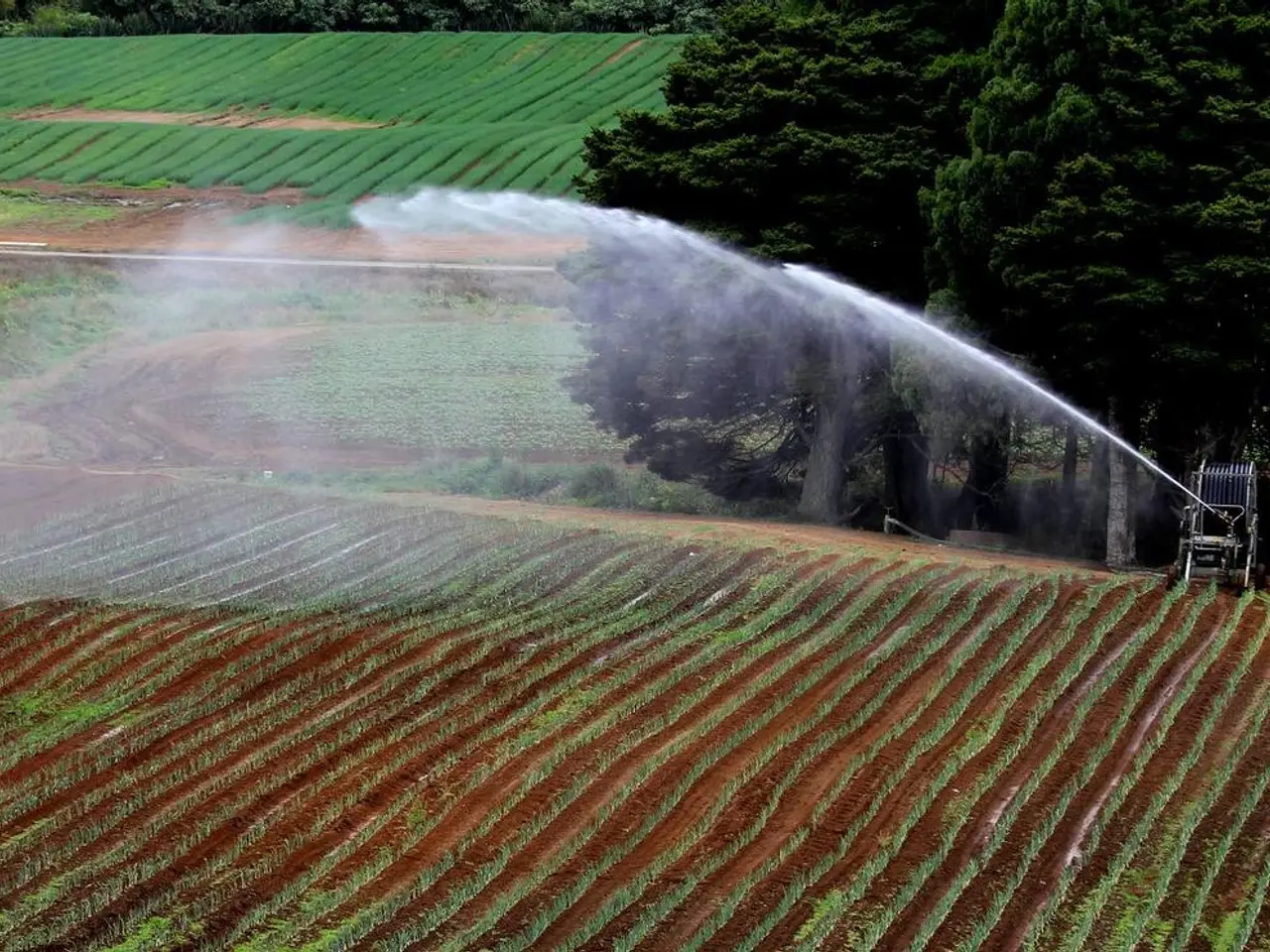AI and Technology's Impact on Revolutionizing Organic Farming Methods
Artificial Intelligence (AI) and technology are revolutionising the world of organic farming, significantly enhancing efficiency, sustainability, and transparency. Here's a look at how these innovations are transforming the organic farming landscape.
Efficiency is at the forefront of these advancements, with precision farming integrating AI with Internet of Things (IoT) devices to collect and analyse field data. This allows for the precise management of temperature, water, and other factors, leading to more efficient agricultural practices and increased productivity, all while optimising resource use.
Crop health is another area where AI is making a significant impact. AI-powered tools monitor crop health using satellite imagery and machine learning algorithms, reducing the need for pesticides and fertilizers by 18-25%. Early detection of diseases and pests further enhances crop yields, making organic farming more sustainable and profitable.
Optimised planning is another key benefit of AI in organic farming. By analysing historical yield data, soil health records, and climate forecasts, AI models can recommend optimal sowing times and crop rotations, reducing crop failure risks and improving profitability.
Sustainability is another crucial aspect of AI's influence on organic farming. AI-driven precision irrigation reduces water usage by 20-30%, while smart pest control decreases pesticide use by 30-40%. These practices contribute to a reduction in environmental impacts, such as CO₂ emissions.
By optimising crop rotations and using AI for soil health analysis, organic farming can preserve traditional biodiversity and maintain soil fertility, reducing the risk of soil loss and water pollution.
Transparency is also being enhanced through the use of technology. Blockchain technology is being implemented to provide a safe and unchangeable ledger for tracking the origin and cultivation methods of organic produce, reducing product loss and fraud in the supply chain.
AI provides farmers with actionable insights, enabling data-driven decisions that improve accountability and transparency in farming practices. This includes monitoring crop vigor and nutrient needs, ensuring better quality and quantity of yield.
Drones and sensors powered by AI can check soil health, find nutrient deficiencies, and suggest organic fertilizers. Image recognition technology can detect pests early, allowing for the use of natural solutions like neem oil or companion planting. Autonomous robots are being developed for labour-intensive tasks like planting, weeding, and harvesting in organic farming.
AI and technology in organic farming are creating new ways to be sustainable, such as smart irrigation systems. These systems use IoT devices and AI programs to monitor soil moisture levels and weather forecasts, ensuring optimal water usage for crops. New smart irrigation systems help conserve water, especially in drought-prone areas.
AI-equipped robots can locate and eliminate weeds without harming crops, saving time and reducing manual labour. By utilising these new technologies, organic farmers can contribute to a better world and remain innovative.
Enhanced efficiency is achieved as farmers can concentrate on strategic decisions due to automation and precision tools. Improved crop quality is ensured through data-driven insights in organic farming. AI-based systems can recommend companion planting techniques and crop rotations for organically increasing soil fertility.
The use of AI and technology in organic farming will be crucial in creating a better and more productive future as the farming industry changes. Technologies such as blockchain promote consumer trust in organic certification, while AI-driven climate control systems, energy-efficient greenhouses, and solar-powered equipment are reducing organic farmers' carbon footprints. AI can optimise growing conditions and reduce energy use in greenhouses, complementing organic farming's environmentally aware philosophy.
In conclusion, AI and technology are transforming organic farming by increasing efficiency through precision farming, enhancing sustainability through reduced environmental impact, and promoting transparency via blockchain traceability and data-driven decision-making. These advancements are paving the way for a more sustainable, efficient, and transparent future in organic farming.
- Precision farming, aided by AI and IoT devices, manages temperature, water, and other field factors for efficient organic farming, leading to increased productivity and optimised resource use.
- AI-powered tools monitor crop health using satellite imagery and machine learning, reducing the need for pesticides and fertilizers, making organic farming more sustainable and profitable.
- By using AI for soil health analysis and optimised planning, organic farming can preserve traditional biodiversity, maintain soil fertility, and reduce the risk of soil loss and water pollution.
- Blockchain technology in organic farming creates transparency in the supply chain, reducing product loss and fraud, while AI-driven solutions like smart irrigation systems, drones, and sensors contribute to a sustainable and future-oriented farming industry.




